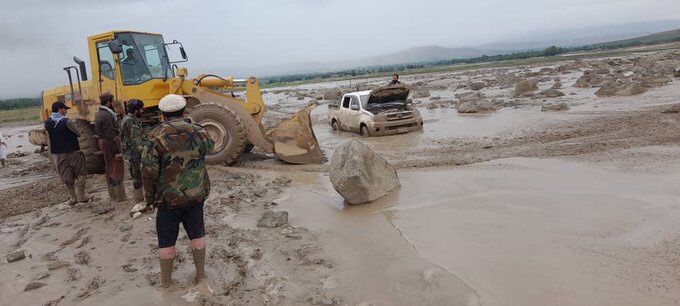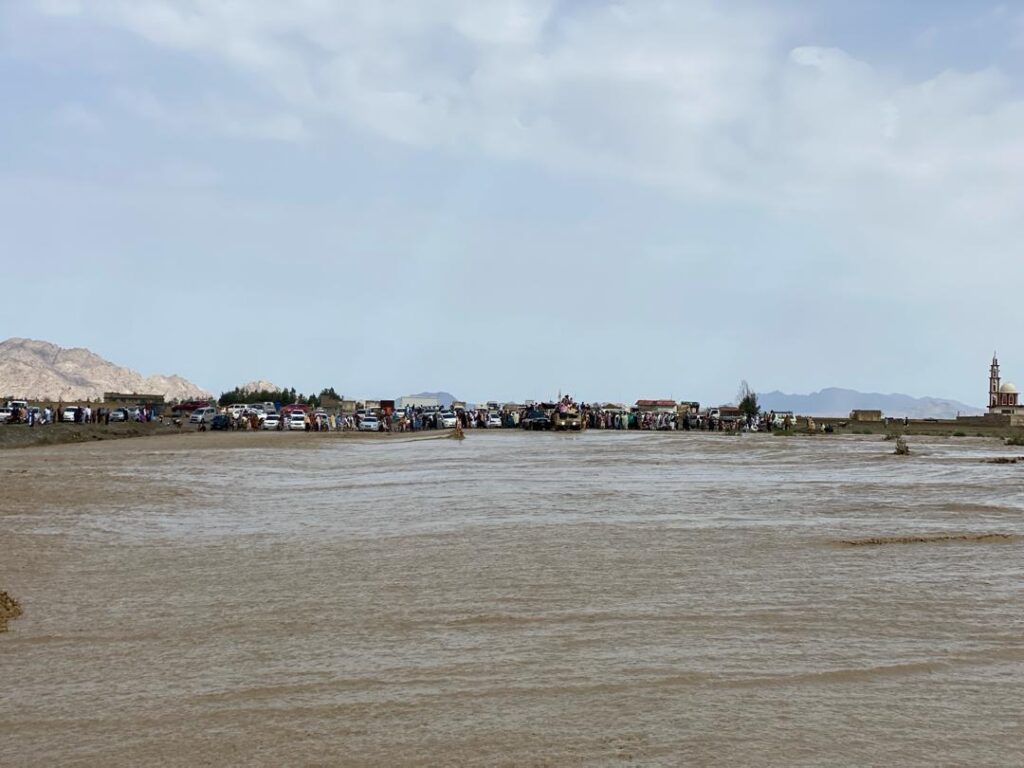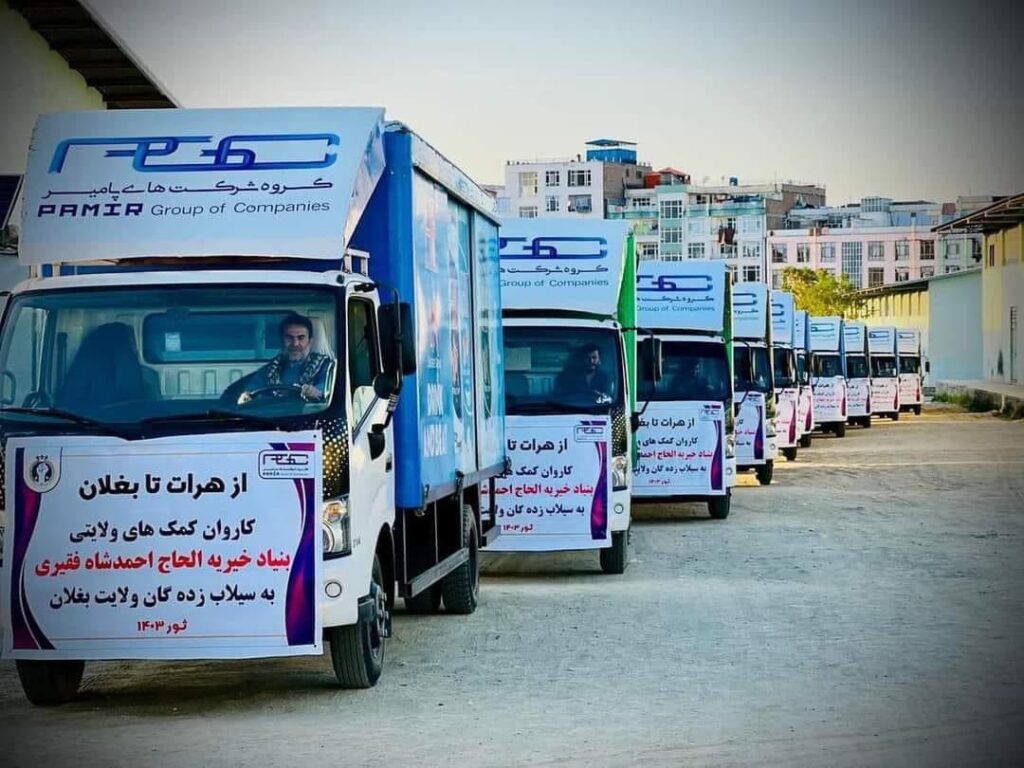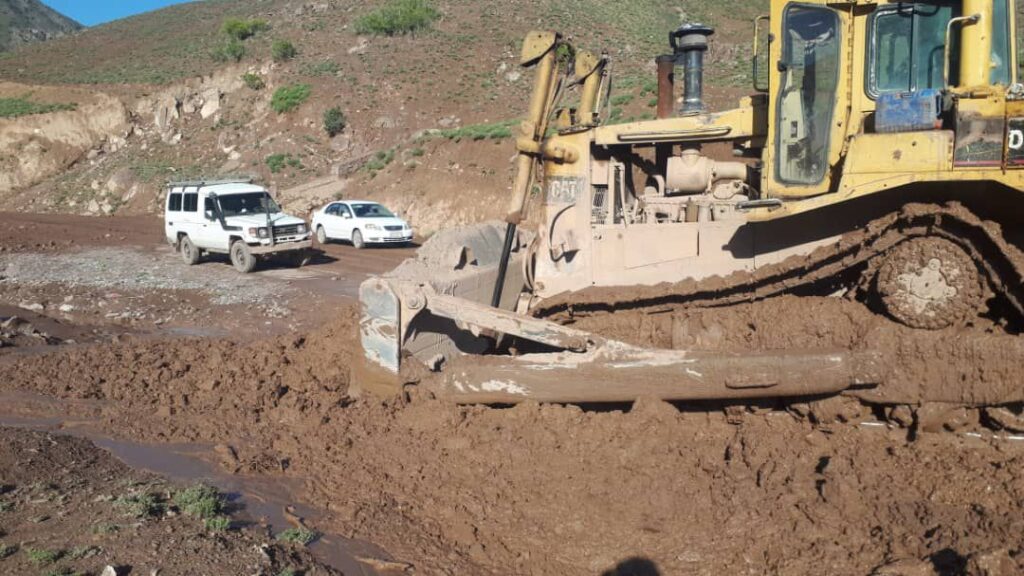By: Humayoon Babur
Kabul (Kubha News)— A local reporter asks one man, “Where is your family?” Without pausing, he replies, “They’re all gone.” When asked about his property, house, shop, and vehicle, he simply says, “Everything is gone.” With tears in his eyes, he adds, “I have no words, just patience to the Creator. No complaints to anyone.”
Recent severe flooding in Baghlan Province has underscored Afghanistan’s acute vulnerability to natural disasters. Torrential rains have claimed the lives of more than 300 people, ravaged infrastructure, and devastated farmland.
The humanitarian crisis is exacerbated by impassable roads, which hinder relief efforts. This urgent situation highlights the critical need for robust emergency response mechanisms.

Shah Mahmood, one of the luckiest survivors in Baghlan province, recounted the ordeal: “My grandfather and I have never seen such darkest water that washed out everything,” he said.
Most survivors spent hours on top of hills, enduring the rain and fearing for their lives.
Climate Change: A Growing Threat to Afghanistan
Afghanistan, one of the world’s lowest contributors to greenhouse gas emissions, faces disproportionate impacts from climate change. Heavier rains and severe monsoons are predicted, exacerbating flood risks.
The country’s mountainous terrain and expanding population in flood-prone areas heighten its susceptibility. The recent floods are a stark reminder of how climate change intensifies existing vulnerabilities, threatening lives and livelihoods.
Imagine living under the constant threat of droughts, floods, extreme temperatures, and land degradation. These threats loom over livelihood, food security, and well-being.

This is the harsh reality for millions of Afghans, who are among the populations most vulnerable to climate change.
Since August 2021, Afghanistan has been deprived of essential climate change support and has been largely excluded from global climate conversations.
It is imperative to prioritize urgent action to assist Afghanistan in fortifying its climate resilience and ensuring a sustainable future for its populace.
Wais Aria, water resource and hydropower expert, who’s with over 15 years of experience in water resource projects planning and design, including flood frequency analysis in Afghanistan, emphasized the severity of the situation: “Floods are a very fast and severe event, especially in Afghanistan.”
The best option would be to remove all houses in floodplain areas to allow floods to pass safely–However, in some places, “it may be difficult to displace people from these areas.” Aria added.” Those regions need a robust flood awareness program and early warning facilities to alert people before floods occur.”
Challenges of International Support and Mitigation Strategies
The lack of international recognition of the Taliban-led government restricts Afghanistan’s access to crucial climate change funds. This non-recognition hinders efforts to implement comprehensive flood mitigation strategies, including preparation, response, and long-term recovery plans.
Developing and utilizing tools like a nationwide flood hazard map is essential, but international cooperation and funding are critical to effectively reduce flood risks and aid affected communities.
Abdul Wahid Tabi, an Afghan affairs analyst who lives in the USA, said. “Continuing to isolate Afghanistan and the Taliban government exacerbates challenges, especially during natural disasters like the Baghlan catastrophe.”
“Access becomes increasingly difficult, impeding aid efforts. It’s crucial for the international community to maintain engagement; abandoning 40 million people is not an option.” – Tabi added.
The international community’s strategy of isolating the Taliban has been ineffective. This approach, which aims to leverage climate change discussions to secure Taliban compliance on women’s and minority rights, mixes politics with the urgent needs of the Afghan people.

The focus on Taliban policies should be balanced with the real needs on the ground. Greater engagement between donor agencies, the U.N., and the Taliban is essential, particularly for pressing issues like climate change.
“developing comprehensive flood plans, including mapping all flood-prone areas in the country and implementing flood control infrastructure, is paramount.” Aria said.
“emphasizes the critical need for developing comprehensive flood plans and implementing flood control infrastructure for Afghanistan is “resilience.” Wais Aria further added, “Afghanistan urgently requires technical and financial support from the international community to accurately identify flood-prone zones.”
